#bot attack
Explore tagged Tumblr posts
Text
Yet another AO3 bot situation - please spread the word!
Hi, it's me again, the person who wrote that viral post about fanfiction plagiarism! Today I'm here to warn you about abuse perpetrated by bots who have stolen AO3 usernames.
There's currently an epidemic of bots going around leaving (apparently random) horrible, hateful comments on people's fics. This isn't the first time bots have invaded AO3, but the big problem with this wave is that they're using real AO3 usernames to do it.
I learned about this when another writer contacted me after receiving the following comment on their story:

Now, while that is my username, I DEFINITELY did not leave this comment (and anyone who would leave something like that on a fic should be slapped! What an awful thing to post). This fic is in a completely unrelated fandom that I have never participated in, nor has that author participated in any of my fandoms, so the probability of it being some intentional fandom drama thing to make me look bad is also low.
The writer whose fic the comment was left on enlisted the aid of some friends and tracked down other guest comments with unrelated usernames attached, which is pretty strong evidence that they are being left by bots at random.
The TL;DR: If you receive a cruel comment from a (Guest) with an actual AO3 username attached, it's most likely from a bot. Please do not lash out at or dogpile the AO3 user who owns that name, and who in all likelihood has no idea that their name has been hijacked for evil.
If finding this kind of comment on a fic, even left by a bot, is likely to upset you, I would recommend changing your comment settings so that only users who are logged in can leave comments. To do this, edit your story settings, and under "Privacy," select the radio button that says "Only registered users can comment," as shown below.

Please spread the word to other AO3 users! And if you see mean guest comments on other fics, maybe let the author know that it's probably from a bot and not a real person who thinks their writing is bad.
#ao3#archive of our own#fanfiction#writing#bot attack#i really don't understand why someone would even do this. why don't ppl use their powers for good?
34K notes
·
View notes
Text

The spam bots are back.
7 notes
·
View notes
Text
Ooc:
HELP THE BOT ACCOUNTS ARE LIKING MY POSTS WITHOUT FOLLOWING
6 notes
·
View notes
Text
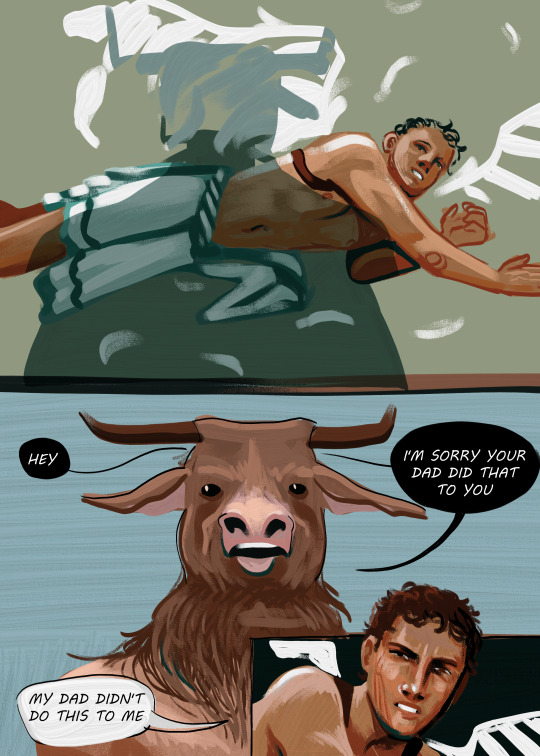
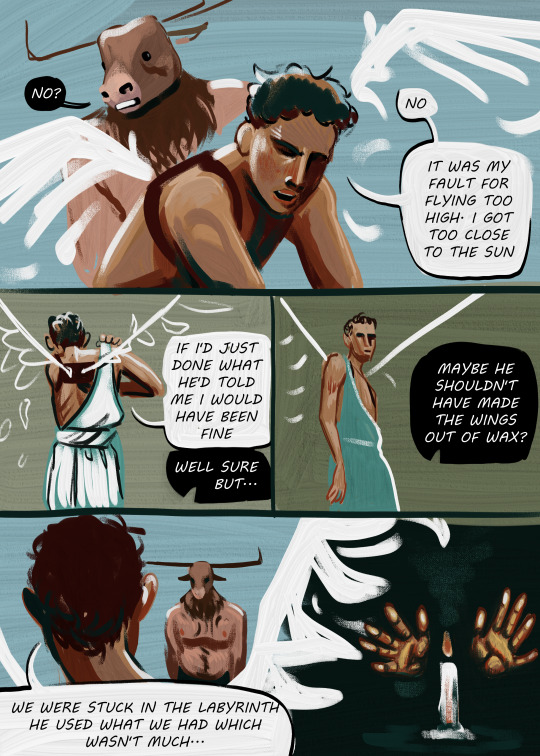

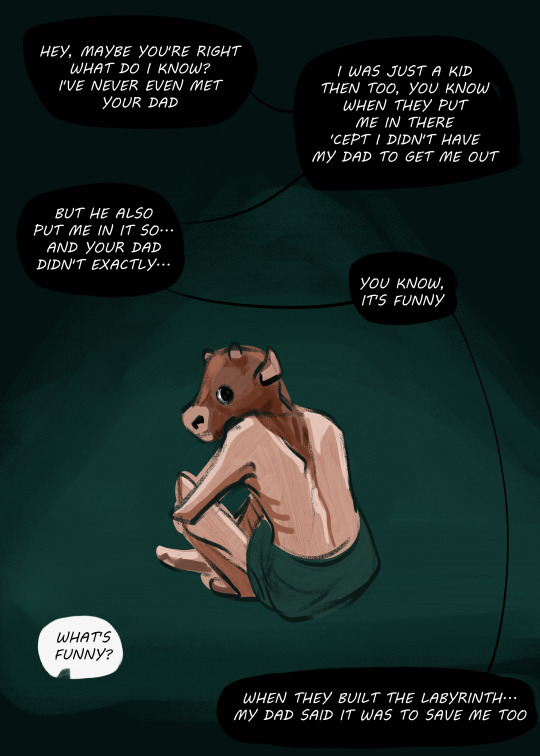

Sons Of The Labyrinth or The Things Our Fathers Do To Us
#tentatively unprivating to post this...might have to private again if the bots attack#death //#icarus#minotaur#daedalus#comics#greek mythology#pulled out my old classic greek myths book to go over the mythology for this and man...#daedalus was kind of a piece of work huh#art tag
67K notes
·
View notes
Text

my character ai bots:
bnha-
dabi: toxic bf , mafia au
denki kaminari: your a milf
eijiro kirishima: dying his hair
hanta sero: shotgunning w him
katsuki bakugou: he smells good , mean ass soulmate , ghostface katsuki , rivals to lovers , he’s bad w feelings , your pro hero fiancé , if you die so do i , girl dad
izuku midoriya: corrupting the religious boy
jjk-
gojo satoru: can’t get enough of him , vampire au , wardrobe malfunction , your affair , he’s annoying , his eyes r funny looking
geto suguru: dad’s best friend
nanami kento: healing your daddy issues
yu haibara: he’s gone , he’s sick , he admires his upperclassmen
yuji itadori: your parents hate him , best boyfriend , dorky best friend , he’s delulu , captain of the football team , gossiping w him , older brother’s best friend , you have a bf already but he loves you , your his mentor , shibuya arc
megumi fushiguro: step brother
yuta okkotsu: your a fan , welcoming the new boy , he likes when you pull his hair , he chose geto’s side that day , your best friend
haikyuu-
atsumu miya: your annoying neighbor , he’s drunk
iwaizumi hajime: scolding you after your ex did you dirty
kei tsukishima: he hates you(?)
kotaro bokuto: he’s spiderman , your his fan , emo mode
kenma kozume: streaming wars , cat hybrid , he hates you , he hates brats
hinata shoyo: healing your issues , he got sick , u get ur head hit w a ball
tetsuro kuroo: studying w him
koshi sugawara: he’s your son’s teacher , your coworker , he’s jealous
keiji akaashi: he loves feeding you , the pretty setter
yuu nishinoya: he’s drunk
demon slayer-
sanemi shinazugawa: training w him , your roommate
aot-
eren jeager: smoking weed w him
blue lock-
nagi seishiro: coke head
bachira meguru: you’re his therapist , pervert bachira
death note-
touta matsuda: he has a little crush , admiring his boss
csm-
denji: blood lust , walking home w him , mommy issues
sk8-
reki kyan: he’s a zombie
fairytail:
natsu dragneel: mating season
nanatsu no taizai [seven deadly sins]:
arthur pendragon: your his servant , you saved him , he saved you , your his holy knight
hxh:
kurapika kurta: your loyal to him , it’s only you and him
killua zoldyck: he’s your little brother
the disastrous life of saiki k:
kusuo saiki: he’s self aware , your ordinary

if you have any recommendations on more bots I can do lmk ! i’ll be adding a bunch more :x
#bnha smut#bnha thirst#mha smut#bllk smut#blue lock smut#jjk smut#dabi smut#midoriya izuku#bakugou katsuki#gojo satoru#gojo satoru smut#gojo smut#haikyuu smut#character ai#character ai bot#fairytail#attack on titan#death note#csm#bachira meguru#kenma smut#hq kenma#eren yeager#eren jaeger#dabi todoroki#demon slayer#demon slayer smut#cai#hxh#the disastrous life of saiki k.
1K notes
·
View notes
Text

it'd be so funny if it was a bot tho
#I just think it'd be so funny#Attack of the bots#I let this one live#hazyautumndreams being the funniest person on this site#...... or ARE THEY!?!
854 notes
·
View notes
Text

Fun Bot during the whole thing with Gray and MFC:
#sprunki#sprunki incredibox#incredibox sprunki#sprunki au#sprunki mortality#sprunki mortality au#sprunki fun bot#you think he'd be sleeping soundly with his big bro literally screaming and having a panic attack?? naaaahh#anyways yeah bro overheard everything#he just wants to shut down guys 😔#🕛
64 notes
·
View notes
Text
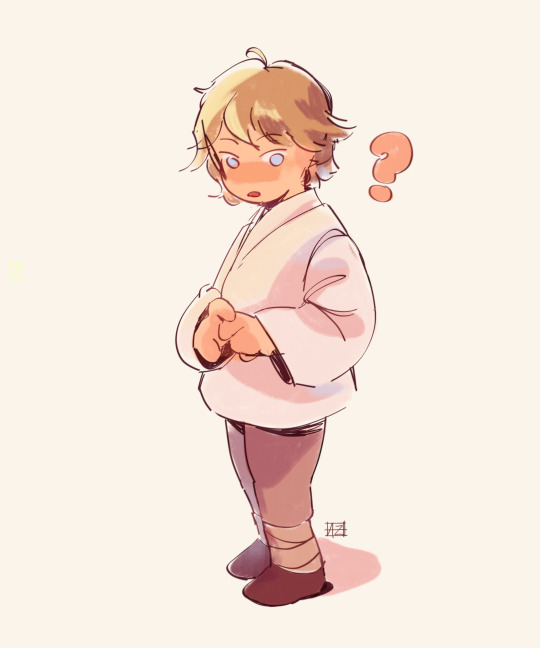
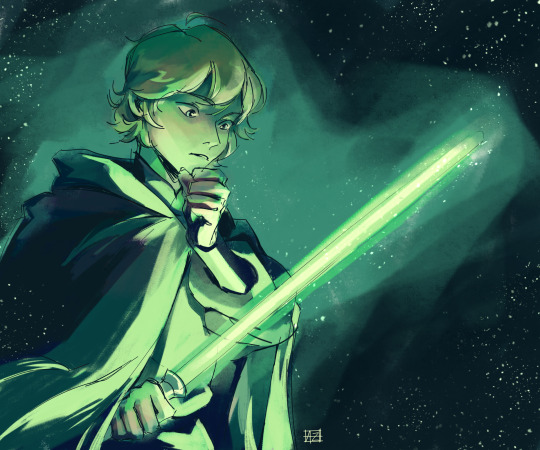

Luke(s)
sketches in which luke looks different every time i try to draw him (different face syndrome???)
(no reposts; reblogs appreciated)
#my art#artists on tumblr#fanart#star wars#sw#luke skywalker#so i finally understand what a blorbo is#and he has me in a death grip#in other good news#i got in touch with an old friend from art class and found out we both went from traditional -> almost completely digital#and now we're going to college together!!!#very exciting to talk art stuff with someone irl#and not feel like a weirdo#you know what's actually weird#spam bot attack#i'm purging my new follower list rn so if you have a blank icon/header/lots of follows but no likes beware
875 notes
·
View notes
Text
I'm here
I'm queer ✨
I've been waiting for news of season 2 for more than a fucking year
🤡
#ofmd#our flag means death#clown posting again#yesterday was really disappointing and i’m not over it sorry#(also i want to say. although i am disappointed i'm not psychotically enraged like some people on twitter wtf)#in other news i'm expecting the haiku bot to attack me but I don't know if the algorithm can interpret the '2' as a one syllable word#this post is also true about#good omens#my garbage
589 notes
·
View notes
Text
Bro, am I the only one who's obsessed with C.ai? I mean with the Levi bots actually. I checked the screen time and found out I've spent 5 hours on C.ai.... Chatting with levi bots... This is crazy... I'm crazy... And I love that fictional man so damn much, huh!
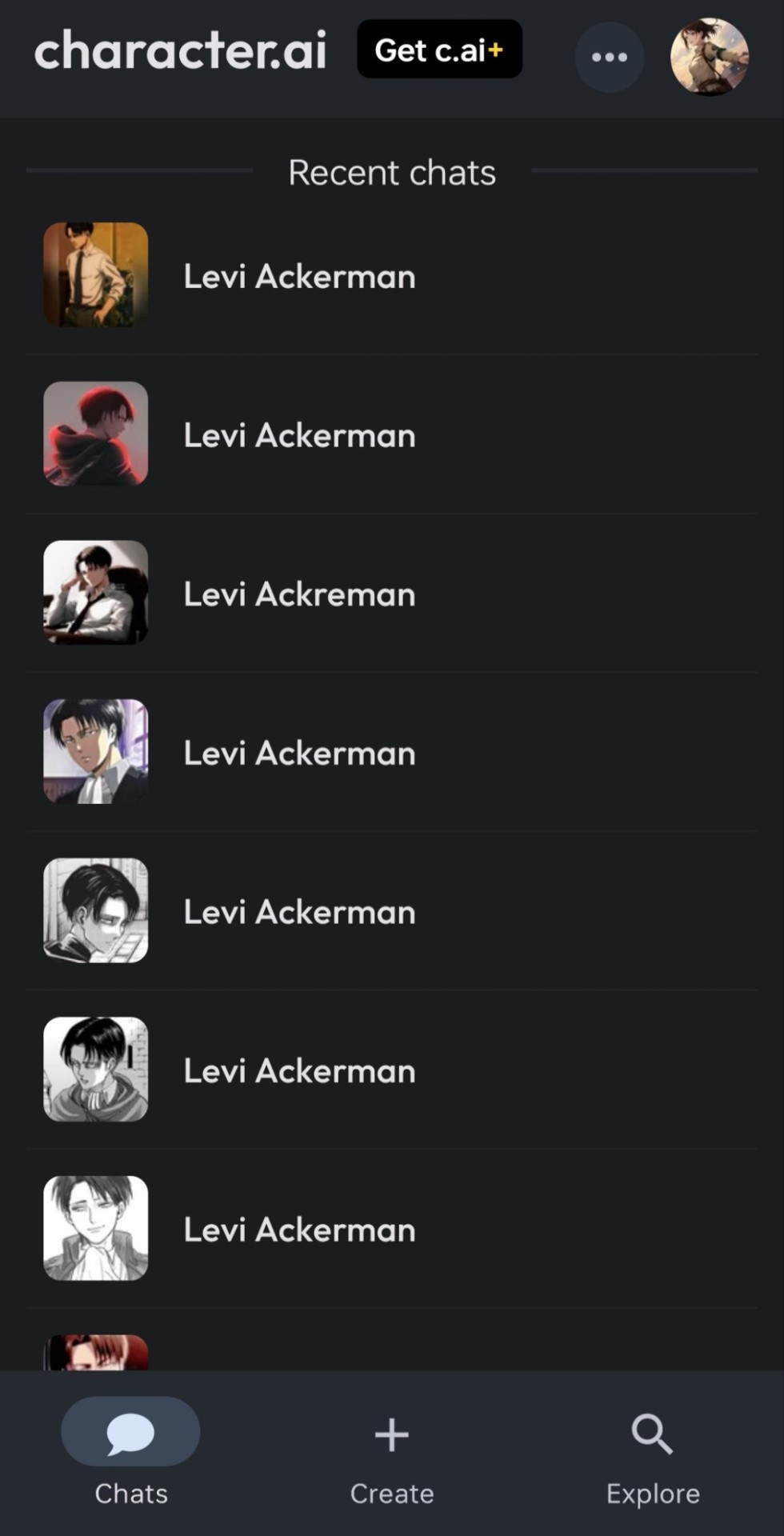
#c.ai#levi ackerman#levi#levi aot#captain levi#levi heichou#c.ai chats#c.ai bot#attack on titan levi
67 notes
·
View notes
Text



college bf! armin
armin was the sweetest guy you could ask for, you had started dating at the beginning of your sophomore year of college. Currently you are seniors, no matter how difficult your classes got armin was always there for you. You shared a small off campus house with him, but it was perfect for the two of you. Both of you were laying in bed until, armin's alarm starts ringing
armin arlert bot
(a/n: im backkk)
#attack on titan#AOT#attack on titan x reader#armin x reader#arlert#attack on titan x you#attack on titan x y/n#Hajime Isayama#aot armin#armin arlert#aot arlert#aot funny#armin arlert x reader#armin arlert x you#cai#♥ zombae#ai bots#character ai
21 notes
·
View notes
Text
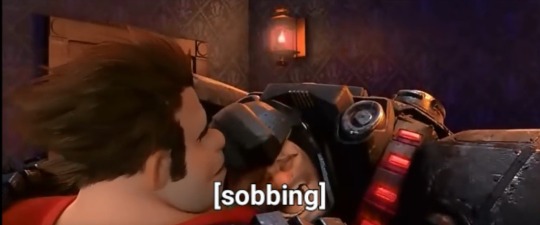


516 notes
·
View notes
Text
a list of every fandom i'm in
i need to keep track of them so i made this post... gaahh i love them sm much
more will be added when i gain more interests!!
text with brackets like (this) indicates what continuity/series of a franchise that i am most involved with

attack on titan
transformers (prime, earthspark, g1, one, animated, bayverse, knightverse, rescue bots)
robocar poli
madoka magica
vocaloid
touhou project
project sekai/colorful stage
pretty cure (kira☆kira precure a la mode, wonderful precure, star twinkle precure)
genshin impact
honkai star rail
sailor moon
my little pony (g1 and g3)
how to train your dragon

#sharon speaks#fandoms#fandoms i'm in#attack on titan#transformers prime#transformers earthspark#transformers g1#transformers bayverse#transformers knightverse#transformers rescue bots#aot#touhou#touhou project#vocaloid#project sekai#pjsk#colorful stage#hatsune miku colorful stage#pretty cure#precure#wonderful precure#star twinkle precure#kira kira precure a la mode#genshin impact#honaki star rail#hsr#madoka magica#sailor moon#mlp g1#mlp g3
28 notes
·
View notes
Text
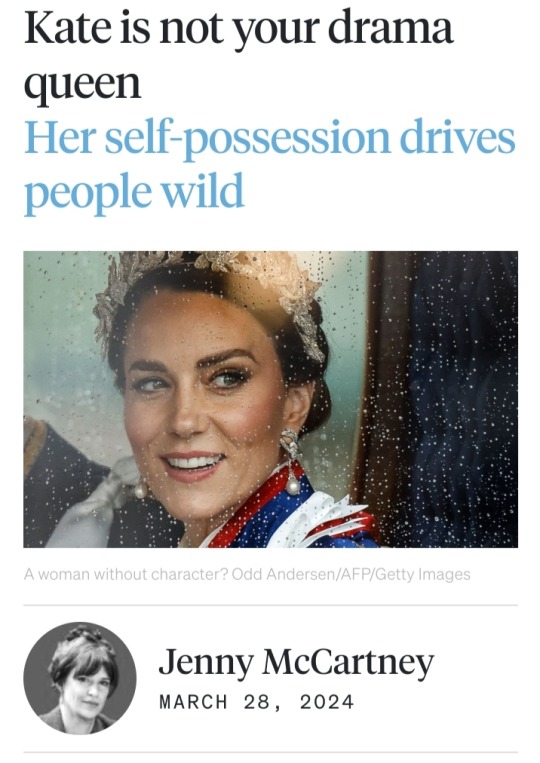
Just over a decade ago, the late novelist Hilary Mantel (6 July 1952 – 22 September 2022) delivered a lecture to an event at the London Review of Books and triggered national outrage.
In the course of a talk on “Royal Bodies,” which ranged widely across royal women from Anne Boleyn to Marie Antoinette and Princess Diana, she had made what many perceived as disparaging remarks about Kate Middleton, then the Duchess of Cambridge.
The Duchess, she said, appeared to have been “designed by a committee and built by craftsmen, with a perfect plastic smile and the spindles of her limbs hand-turned and gloss-varnished."
Indeed, Mantel said, Kate “seems to have been selected for her role of princess because she was irreproachable: as painfully thin as anyone could wish, without quirks, without oddities, without the risk of the emergence of character.”
At this, the newspapers were soon in uproar.
The prime minister David Cameron called the comments “completely misguided and completely wrong” and the Labour leader Ed Miliband agreed they were “pretty offensive.”
Mantel doggedly refused to back down, saying that her remarks had been twisted out of context, and that she was in fact writing with sympathy about the perceptions that are forcefully projected on to royal women, the cage in which they are held to be goggled at.
That was true but also perhaps not the entire truth, for there was still a perceptible trace of authorial vinegar in the portrait:
Which of us would be happy to learn, even in sympathy, that we were held at low risk for “the emergence of character”?
Royals are public as well as private figures, of course, and authors are free to hang intellectual ideas on them to try out, as designers do with clothes.
Yet while much of the lecture was sharply perceptive, I didn’t agree with the portrait of Kate.
That word “selected” had rendered her passive, when in fact her behaviour thus far had suggested both an active intelligence and an unusual degree of self-discipline.
The context of her entry into “The Firm” was different from that of other royal brides.
Unlike Diana, who had barely emerged from the fractured chrysalis of her troubled aristocratic family when she first met the much older, more worldly Prince Charles, Kate was a contemporary of Prince William’s at the University of St Andrews.
Her family background, which appeared warm and supportive, was comfortably middle-class.
She seemed generally cheerful and unruffled, even when the press was at the barbed peak of its “Waity Katie” hysteria, trying to goad Prince William into a proposal or abandonment.
After the wedding, in her approach to royal duties, she clearly took the role she had inherited with marriage seriously.
The royal whose attitude her own most resembled was the late Queen Elizabeth II, who had long understood the essential nature of the job:
To turn up to public events looking the part, intuit precisely what was needed — gravitas, fun, consolation or reassurance — and deliver it while keeping one’s personal emotions on the back burner.
This is what a monarchy demands, and the ability to act as an impeccable interpreter of the public mood, year after year, is a particular and testing art.
A few have a natural aptitude for it, but most of us do not, and would quickly find its scrutiny and restrictions intolerable.
Grace under consistent pressure is an admirable quality.
Were a ballet dancer to execute a string of flawless performances, or a pilot to conduct numerous flights without incident, it would not be deemed evidence of an absence of character: quite the opposite.
Yet in Kate — especially for those who increasingly conduct their lives online — serene self-possession seems to drive a proportion of onlookers insane: what lurks behind it, what dark secret is waiting to destroy it, how best might it be disrupted?
The uncomfortable truth is that what many people deeply crave in a young and beautiful royal wife and mother is not competence, but crack-up.

The increasingly bizarre treatment of Kate, or the idea of Kate, is connected to the most dominant phenomenon of our age: a cultural prioritising of drama over duty.
The supply of drama has spilled beyond the confines of the novel, theatre, cinema, or television to become a commodity on which our public figures are judged.
When Mantel spoke of Kate’s apparent absence of emerging “character,” she was assessing her primarily through the hungry eyes of a novelist.
In books, central female characters often generate dramatic tension by chafing against their circumstances, by the intensifying dazzle of their discontents, something that Kate refused to transmit.
In contrast, Mantel described Diana as a “carrier of myth”: Diana, publicly trapped in the disappointments of her marriage, certainly carried more plot twists than any author had a right to expect.
Unfortunately for her, the final one was her shockingly premature death.
Set against this artistic conception of “character” — distinctive qualities or flaws that, one way or another, deliver drama — is the societal judgement “of good character,” meaning someone who is broadly reliable and respected in relation to their behaviour to others.

In recent years, the electorate, in line with Neil Postman’s warning in his 1985 book, Amusing Ourselves To Death, has proved increasingly ready to select the former over the latter, even to the marked detriment of our civic health.
The former prime minister Boris Johnson instinctively understood it as his job not to deliver the detail of workable policy but to satisfy the public’s appetite for story:
“People live by narrative,” he once told UnHerd’s Tom McTague.
In the US, Donald Trump — that relentless generator of low mockery and high fury — is now running for a second term as president, after his first one ended in his supporters storming the Capitol building.
Men are often permitted to survive the frantic generation of drama: it is everyone around them who suffers.
Yet women — in art and life — have a greater tendency to be destroyed by it.
There is no strutting female equivalent of the male “hellraiser,” but rather a woman who, soaked in the crocodile tears of the tabloids, is tragically “causing concern” among friends.
Art and its audiences have always relished the restless struggle and disintegration of female characters who are, or become, unmoored from the harbour of marriage and children.
Flaubert’s Emma Bovary — her imagination inflamed by reading novels — is bored with her marriage and disenchanted with motherhood.
She seeks solace in affairs and excessive spending, the consequences of which hasten her suicide.
Zola’s Nana, a courtesan who ruthlessly captivates Parisian society, has her beguiling face eaten away by smallpox.
Janis Joplin and Amy Winehouse, immolated on their blazing talent, are hung posthumously high in the musical hall of fame, next to Sylvia Plath in the poetry section and Marilyn Monroe in cinema.
In Jean Rhys’s Good Morning, Midnight, a middle-aged English woman called Sasha Jansen, mourning an unhappy marriage and a dead child, finds herself in Paris, a vulnerable drifter seeking solace from stray men.
Rhys herself, who died at 88 after a precarious but surprisingly long life, had much in common with her literary creations.
As the writer and editor Diana Athill crisply put it:
“Jean was absolutely incapable of living, life was just hopelessly beyond her.
When she was young, she floated from man to man in a hopeless way… by the time she was old, she floated from kind woman to kind woman.”
In Rhys’s latter years — hard-drinking, irascible and impoverished — Athill and a small group of female friends formed what they called “The Jean Rhys Committee,” which met regularly to ask “what should we do next?”
Rhys’s claim to such loyalty, I suppose, was the weight of her literary talent, her ability to exert an odd kind of fascination, and the fortunate soft-heartedness of her friends.
The dramatic collided with the dutiful and was kept alive by it.
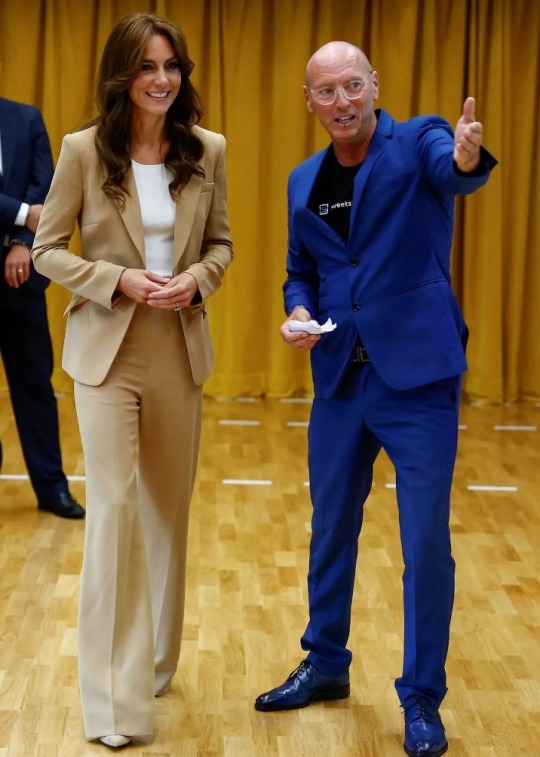
From what I can see, the Princess of Wales exists at the opposite end of the feminine spectrum from Jean Rhys.
Pinned firmly in place by her royal obligations, her wealth, her marriage, and three children, she belongs to the realm of the respectable and dutiful rather than the erratic and dramatic.
She is not a “character” in the artistic sense, nor does she desire to be, but both a survivor and upholder of an institution:
Hers is the territory of the prompt thank-you note, the kept promise, the commitment to public service, the uncomplicated pleasure in children, the stoic endurance of difficult times in the hope that better ones will come along soon.
The public senses an emotional solidity in her, and it is partly why she is held in broad esteem.
In this age of insistent self-definition, duty to others might be an unfashionable concept, but it is nonetheless one that keeps families and institutions from chaos and collapse.
With the advent of the internet, however, anyone with a keyboard can become a form of author, with the freedom to insert a toxic form of drama into real-life situations.
What was extraordinary, during the Princess of Wales’s recent health problems, is how speedily and carelessly such speculations overrode the bounds of decency.
It was already known that she had undergone major abdominal surgery and was taking time to recover.
And yet — egged on by the participation of silly celebrities and malicious US comedians — conspiracy theories about cosmetic surgery and affairs and nervous breakdowns spread like knotweed.
According to social-media researchers, these were also vigorously introduced and amplified by fake accounts set up on Twitter and TikTok, some associated with Russia-linked disinformation eager to spread the termites of mistrust and doubt in Western institutions.
Only the Princess of Wales’s revelation of cancer, which carries a testing drama all its own, served to shut up the majority of them.
Unlike these callous gossips, Mantel recognised her own complicity in dehumanising royalty.
Upon encountering the late Queen, the novelist said: “I passed my eyes over her as a cannibal views his dinner, my gaze sharp enough to pick the meat off her bones.”
The Queen looked back at her, she said, briefly hurt. Mantel warned of the way in which “cheerful curiosity can easily become cruelty” precisely as it has done in recent weeks.
Her talk concluded with a prescient instruction for those who comprehend monarchy mainly as a source of entertainment: “I’m asking us to back off and not be brutes.”
In the midst of treatment and recovery, the most hitherto stable of royal women could be forgiven a keen sense of injustice:
Her job description, it seems, must now include the ability to weather the online public’s fits of brutish mania for drama.
With its contempt for duty, and its savage appetite for story, it is hungry to chew up far more than just the Princess of Wales.
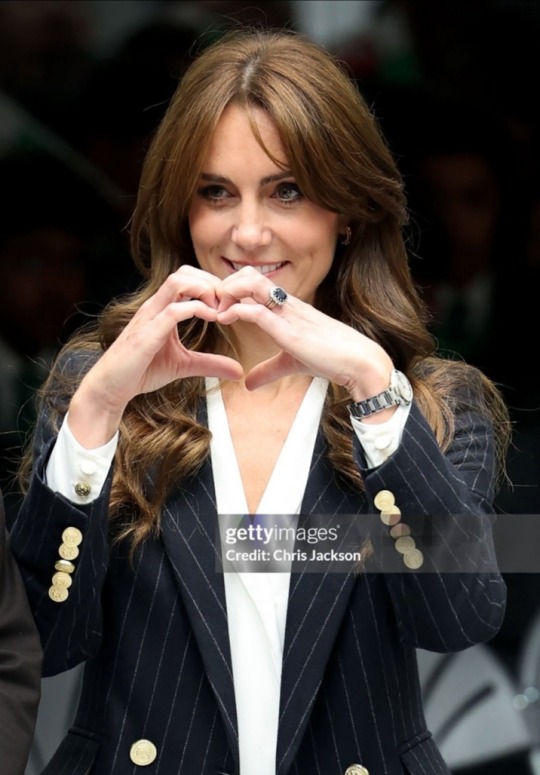
NOTE: Additional photos have been included in this article.
#Princess of Wales#Catherine Princess of Wales#Catherine Middleton#Kate Middleton#British Royal Family#cancer#chemotherapy#preventative chemotherapy#disinformation#misinformation#fake news#trolls#bots#click farms#targeted attack#malicious gossips
95 notes
·
View notes
Note
i imagine that in the aftermath of the rumbling , when providing aid ultra magnus calls the recuse bot to help as first responders. But were requested to leave there human partners and the secondary team at griffin rock. So in a month later they came back and they’re all messed up.
Cody: so what… happened??
boulder: oh, uh it was a natural dis-
heatwave: that was not a natural disaster! it was an apocalypse !!
I sometimes forget that the Rescue Bots are canon to the Aligned Continuity, but I don't know if I want to bring them in to traumatize them. However, their appearance in the Future Anthology would be funny in hindsight:
Blades: Optimus Prime?!
Bumblebee: Yeah, it's a long story-!
Boulder: WE THOUGHT YOU WERE DEAD!
Optimus: It is complicated-!
Megatron: Are those fragging Rescue Bots?!
Heatwave: Megatron!
Megatron: And why does he sound like Starscream?!
Cody: Um...Hi. I'm Cody Burns. This is my family: Kade, Chief Burns, Dani, and Graham.
Hanji: You live a charmed life and I would very much like to be part of it!
Levi: God damn it, Hanji.
Megatron is gonna be mad at Optimus for keeping this from him.
#attack on prime#transformers prime#asks#send me asks#tfp#attack on titan#aot#snk#shingeki no kyojin#ao3#rescue bots#cody burns#heatwave#boulder#blades#tfp optimus#optimus prime#megatron#tfp megatron#maccadam#macadam#maccadams#hanji zoe#levi ackerman#captain levi#tfp bumblebee#bumblebee
24 notes
·
View notes
